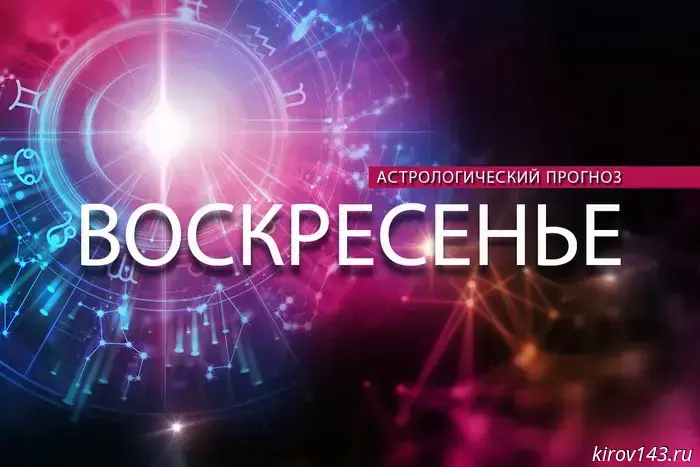Spy, get out!
The Soviet screen turned the spy into an icon, post‑Soviet cinema — into a man with doubts, and the new series of the 2020s have turned him into an instruction manual for power. From Stierlitz to “Alex Lyutiy,” from “The Embassy” to “GDR” — the heroes step out of the shadows to show the viewer how the system works: who governs, who manipulates, and what secrets are hidden in its bowels.
Soviet television of the 1970s set the canon: Seventeen Moments of Spring (1973) turned Stierlitz into a cultural code — a hero without the right to doubt, an almost iconic figure that the viewer took as a model of steadfastness and service. Later, TASS Is Authorized to Declare… (1984) only reinforced this optics of “good versus evil,” personalizing the confrontation between the KGB and the CIA, where moral clarity mattered more than psychological ambiguity.
After the collapse of the USSR the screen long turned away from the spy theme: the image of the heroic intelligence officer proved too monumental for the new reality. The return came in the mid–late 2000s, but the tone was already different. SMERSH (2007) and Spies: The Last Battle (2008) brought back the fabric of the front — yet they show not bronze busts, but people with fatigue, divergent motivations, domestic fractures. The humanizing of the myth continues in Isaev (2009): the young Stierlitz here is not a finished icon but a figure in the making, where duty collides with personal history.
The Spy (2012), a screen adaptation of Boris Akunin’s novel (dir. Aleksey Andrianov), takes the next step: the spy becomes the hero of a thriller, drawn into ambiguous games and betrayals. And The Cry of the Owl (2013) moves us into a postwar reality where the line between “hero” and “enemy” blurs: intelligence becomes part of collective trauma rather than a display of valor.
A separate thread is continued by The Embassy (2018). This is no longer a military front but the “quiet war” of diplomacy, where intelligence is dissolved into the daily work of the foreign ministry. There are no leaps under fire here — there are negotiations in which every word can become a weapon.
The hero played by Igor Petrenko is a composite image of a diplomat in which the viewer can trace different eras of foreign policy. On the one hand, he is a shadow of Andrey Kozyrev, Russia’s first foreign minister (1990–1996), whose “soft power,” restraint and self-control are associated with the early ’90s, a time of searching for compromise and attempts to fit into the world order. On the other hand, the series can also be read in the context of a new generation of diplomats, whose most prominent figure has been Sergey Lavrov. His sharp public remarks, like the famous “Well, idiots, f…,” transformed the foreign minister into a media character, the face of Russian diplomacy, where soft power proved inappropriate and strategy was reduced to retaliatory blows and displays of toughness.
And that is why The Embassy is interesting as a rare experiment on screen: at its center is not the “forceful diplomat” but the image of psychological play, where words and pauses matter more than shouts. And although Viktoriya Tolstoganova does not play a leading role, her character brings that fragile intonation of soft power that elevates the hero but at the same time destroys him from within, exposing the drama of a diplomat under constant pressure.
In the 2020s the image becomes as complex as possible — intelligence on screen turns into a lens for talking about power. Alex Lyutiy (season one — 2020; season two — 2022; season three — 2024) builds a drama of vengeance: here intelligence is not a romantic front but a machine of punishment.
Silver Wolf (2022) returns the appeal of the “invisible front,” but already tinged with nostalgia and generational contrast — a seasoned officer and a young operative are forced to reconcile methods and values.
And Big House (2023) shifts the focus from the “hero” to the “system”: the camera observes the security apparatus as an autonomous machine into which a human is built as a component.
A distinct line is set by projects that literally expose the technology of governance. The Committee (2022) demonstrates how the elite of the organs is formed and reproduced, turning the biographies of officials and epaulettes into a chronicle of the institution’s own formation.
In The Head of Intelligence (2022) the biography of Pavel Fitin is constructed so that the viewer receives not only a plot but also “lessons” in influence: methodicalness, working with information, recruitment, building a network — the screen becomes a kind of case study in manipulation and control.
And finally GDR (2024) is an important point where genre intrigue is fused with political metaphor. The story of the Soviet residency and the struggle over the archives of East German state security is presented not only as a retro detective but also as a myth about the “origins” of the contemporary elite.
At the same time, one of the characters clearly alludes to the young Vladimir Putin — a KGB officer who served in Dresden in the late 1980s. The creators avoid direct imitation, but details — from the German language to recognizable behavioral traits — are read by the viewer as a transparent allusion. As a result, the series becomes a story not only about the past but also about the roots of today’s political leadership.
This half‑century trajectory outlines an arc: from icon to instruction. In the Soviet canon the spy is a saint of duty and clear values; in the post‑Soviet return he is a man with doubts and weaknesses; in the new decade he is a conduit of techniques of power.
SMERSH and Spies strip away the bronze; The Spy, The Cry of the Owl and The Embassy show a thriller of doubts and the play of diplomacy; Alex Lyutiy and Big House demand systemic responsibility; The Committee and The Head of Intelligence give the viewer direct lessons in manipulation.
And GDR becomes the final point: the series reads not only as a retro story but also as a transparent hint at Putin’s biography — and therefore turns into a mirror of the present day.
Другие Новости Кирова (НЗК)
 A Kirov resident sneaked into the shopping center on Vorovskogo Street at night.
A young man saw the slightly open door of the shopping center and decided to enter.
In Slobodskoy, a contractor "dug up" a mortar shell.
During the course of the work, the contractor came across an interesting find — a mortar shell manufactured in 1939.
A Kirov resident sneaked into the shopping center on Vorovskogo Street at night.
A young man saw the slightly open door of the shopping center and decided to enter.
In Slobodskoy, a contractor "dug up" a mortar shell.
During the course of the work, the contractor came across an interesting find — a mortar shell manufactured in 1939.
 On August 31, dozens of Kirov residents will be left without cold water.
Due to repair work on the networks, there will be interruptions to the cold water supply.
On August 31, dozens of Kirov residents will be left without cold water.
Due to repair work on the networks, there will be interruptions to the cold water supply.
 Cancers' imaginations will run wild, and Pisces will be in the spotlight.
Astrologers revealed what Sunday, August 31 will be like for each zodiac sign.
Cancers' imaginations will run wild, and Pisces will be in the spotlight.
Astrologers revealed what Sunday, August 31 will be like for each zodiac sign.
 Improvements to the arboretum are planned in Kirov.
In Kirov, a project to improve the arboretum is being prepared: local activists plan to apply for a grant from the Presidential Fund for Nature to develop the area by the pond, clear the park, and make it more comfortable for city residents to relax.
Improvements to the arboretum are planned in Kirov.
In Kirov, a project to improve the arboretum is being prepared: local activists plan to apply for a grant from the Presidential Fund for Nature to develop the area by the pond, clear the park, and make it more comfortable for city residents to relax.
Spy, get out!
The news says one thing, while spy dramas show another. Here our agents not only save the Motherland but also pull back the curtain on how the state manipulates people. From the iron Shtirlits to "Alex Lyutoy", from "The Embassy" to "GDR" — on-screen heroes expose what usually remains in the shadows, and the viewer suddenly sees more than they wanted.
